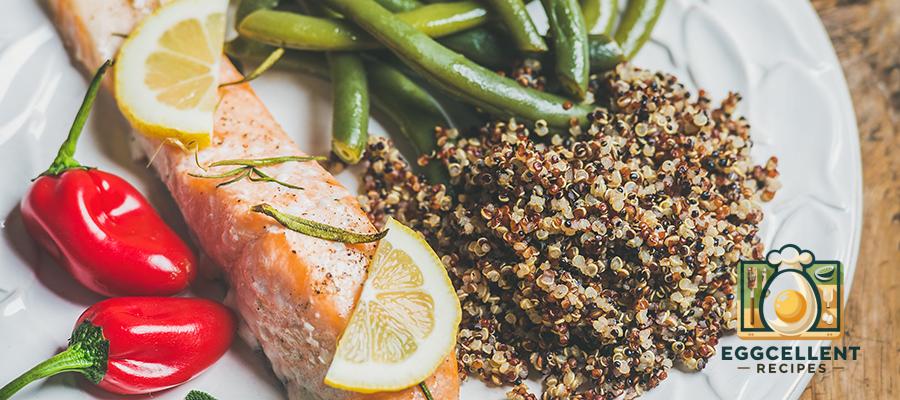
The MIND (Mediterranean-DASH Intervention for Neurodegenerative Delay) diet combines elements of the Mediterranean and DASH (Dietary Approaches to Stop Hypertension) diets to create a plan focused on brain health. Research has shown that the MIND diet can reduce the risk of Alzheimer’s disease and improve cognitive function. This article will provide an overview of the MIND diet and a detailed one-week meal plan to help you get started.
What is the MIND Diet?
The MIND diet emphasizes foods that have been shown to benefit brain health, while limiting foods that can negatively impact it. The diet encourages the consumption of:
- Leafy Green Vegetables: At least six servings per week.
- Other Vegetables: At least one serving per day.
- Berries: At least two servings per week.
- Nuts: At least five servings per week.
- Olive Oil: As the primary cooking oil.
- Whole Grains: At least three servings per day.
- Fish: At least one serving per week.
- Poultry: At least two servings per week.
- Beans: At least three servings per week.
- Wine: One glass per day (optional).
The MIND diet also advises limiting the intake of:
- Red Meat: Less than four servings per week.
- Butter and Margarine: Less than one tablespoon per day.
- Cheese: Less than one serving per week.
- Pastries and Sweets: Less than five servings per week.
- Fried or Fast Food: Less than one serving per week.
One-Week MIND Diet Meal Plan
Day

Breakfast: Greek yogurt with blueberries and a sprinkle of walnuts.
Lunch: Spinach and chickpea salad with olive oil and lemon dressing.
Snack: A small handful of almonds.
Dinner: Grilled salmon with quinoa and steamed broccoli.
Day 2

Breakfast: Whole grain toast with avocado and a poached egg.
Lunch: Mixed greens salad with grilled chicken, cherry tomatoes, cucumbers, and olive oil dressing.
Snack: Sliced bell peppers with hummus.
Dinner: Baked chicken breast with brown rice and sautéed spinach.
Day 3

Breakfast: Oatmeal topped with strawberries and flaxseeds.
Lunch: Lentil soup with a side of mixed greens.
Snack: A small handful of mixed nuts.
Dinner: Shrimp stir-fry with assorted vegetables and a side of brown rice.
Day 4

Breakfast: Smoothie made with kale, banana, and almond milk.
Lunch: Quinoa salad with black beans, corn, bell peppers, and lime vinaigrette.
Snack: Apple slices with almond butter.
Dinner: Baked cod with sweet potato and a side of green beans.
Day 5

Breakfast: Scrambled eggs with spinach and tomatoes.
Lunch: Turkey and avocado wrap in a whole grain tortilla.
Snack: Fresh berries with a sprinkle of chia seeds.
Dinner: Grilled chicken with wild rice and roasted Brussels sprouts.
Day 6

Breakfast: Whole grain cereal with almond milk and sliced banana.
Lunch: Chickpea and vegetable stir-fry with a side of brown rice.
Snack: A small handful of walnuts.
Dinner: Baked trout with quinoa and steamed asparagus.
Day 7

Breakfast: Greek yogurt with raspberries and a drizzle of honey.
Lunch: Spinach and kale salad with grilled shrimp, cherry tomatoes, and olive oil dressing.
Snack: Carrot sticks with hummus.
Dinner: Turkey meatballs with whole grain pasta and marinara sauce, and a side of steamed broccoli.
Tips for Success on the MIND Diet
- Plan Ahead: Prepare your meals and snacks in advance to ensure you stick to the diet.
- Stay Hydrated: Drink plenty of water throughout the day.
- Limit Processed Foods: Focus on whole, unprocessed foods.
- Use Herbs and Spices: Enhance the flavor of your meals with herbs and spices instead of salt or butter.
- Moderation is Key: Enjoy occasional treats in moderation to stay on track.
Conclusion
The MIND diet is a powerful tool for promoting brain health and reducing the risk of neurodegenerative diseases. By following this one-week meal plan, you can start incorporating brain-healthy foods into your diet while enjoying a variety of delicious meals. Remember, consistency is key, and making gradual changes to your eating habits can lead to long-term benefits for your overall health and well-being.






